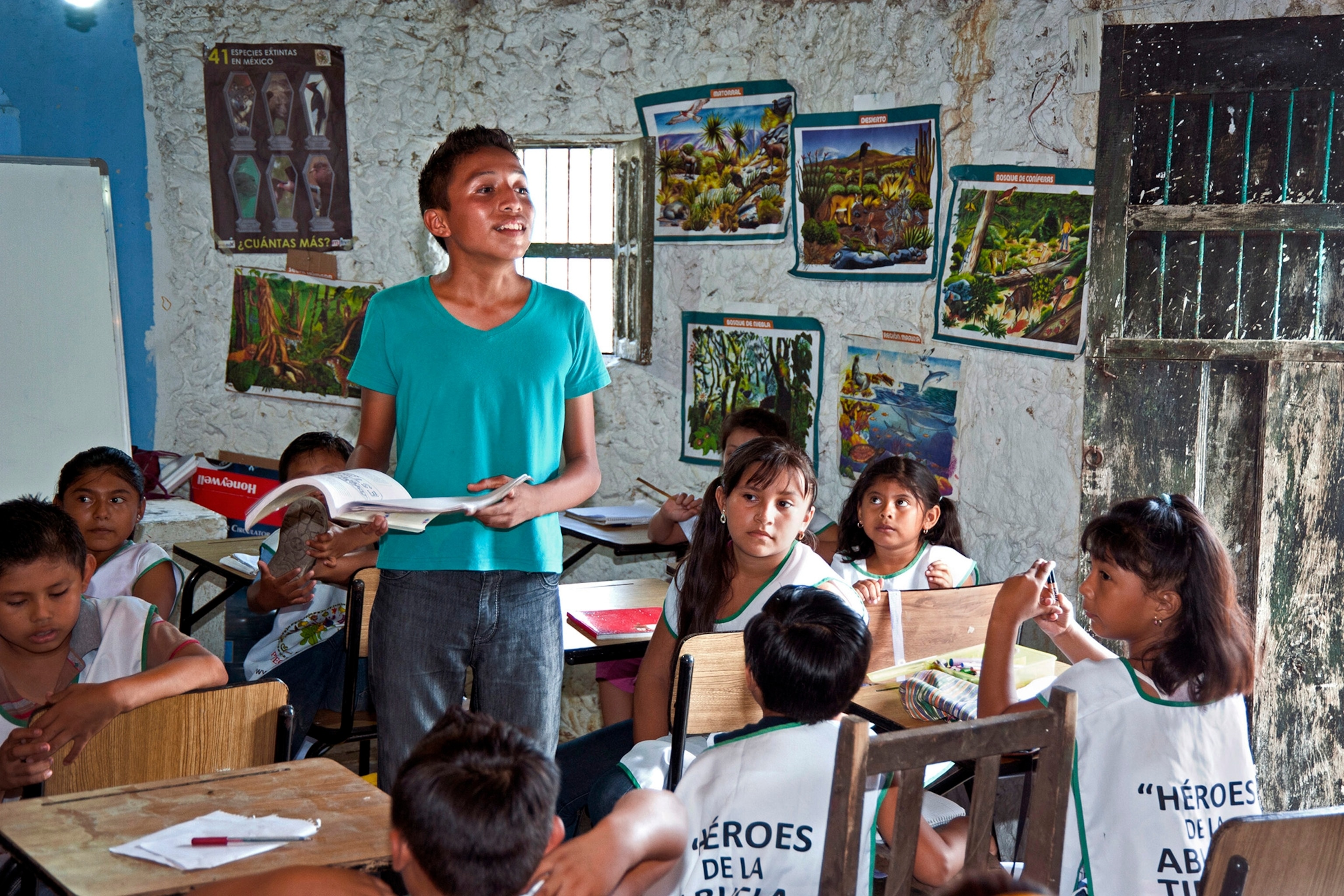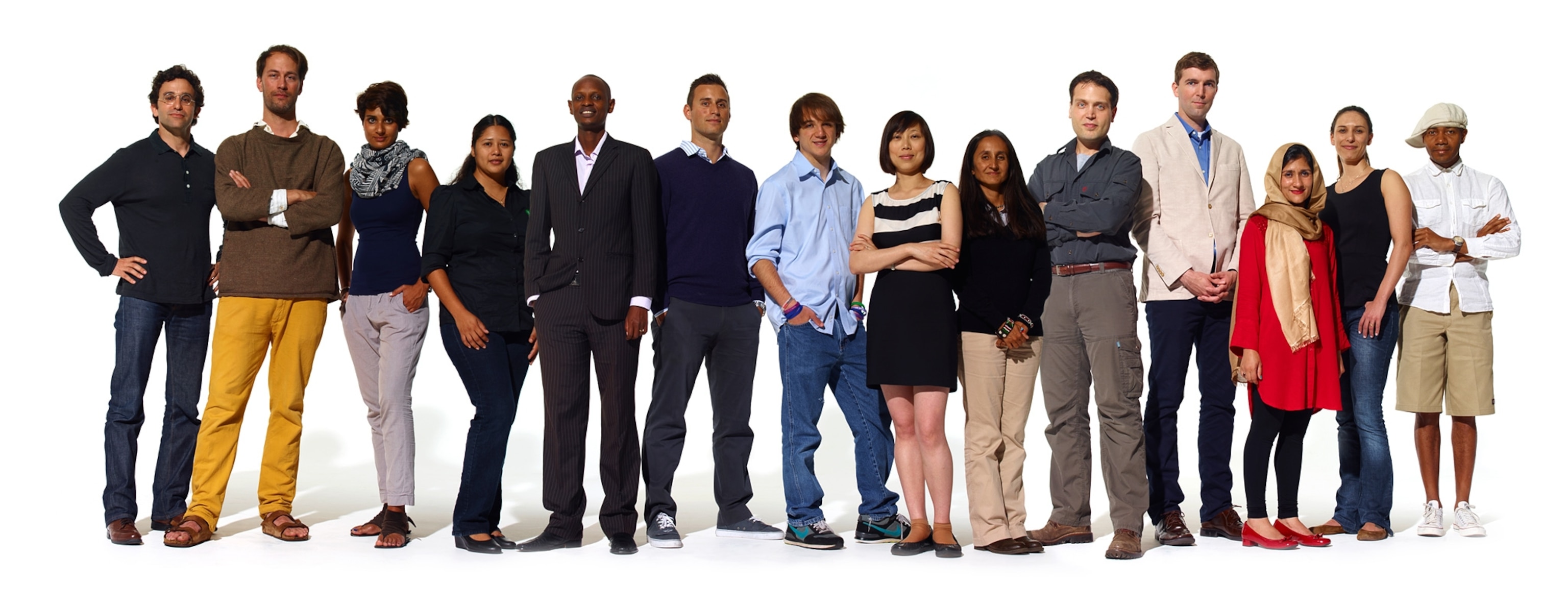Maritza Morales Casanova: Saving Mexico's Environment Through Children
Since age 10, Morales Casanova has been advancing conservation education.
Editor’s note: Maritza Morales Casanova is one of National Geographic's 2014 Emerging Explorers, which honors tomorrow's visionaries—those making discoveries, making a difference, and inspiring people to care about the planet.
Maritza Morales Casanova has spent 20 years working to revolutionize environmental education in Mexico—and she's only 30 years old.
At age 10, she founded an environmental advocacy group that went on to launch an unusual educational park that will help tens of thousands of kids develop an appreciation for the environment by experiencing it. Today, Morales Casanova meets with the likes of Mexican President Enrique Peña Nieto to discuss her idea of writing conservation into national educational policy.
As the fourth most biodiverse nation on Earth, Mexico is of huge ecological significance. Iconic species range from jaguars, monkeys, and parrots to seals and tree frogs. Yet there are few safeguards to protect vulnerable habitats and species. Environmental laws are generally lax, says Morales Casanova, resulting in unbridled agricultural and commercial development that deforests, pollutes, and degrades forests, plains, coastal areas, and a vast network of underground lakes.
And since environmental education is mostly absent, the generation that will have the biggest role in preserving Mexico’s biodiversity or continuing its decline is largely uninformed and unmotivated. "Education is the most powerful tool we have for solving environmental problems,” says Morales Casanova. “Empower children with information, leadership skills, and confidence and they will change the world."
Early Start
While still a young child, Morales Casanova saw the environmental knowledge deficit reflected in neighborhood children who harmed local trees and even their own pets. So she formed a group called Humanity United to Nature in Harmony for Beauty, Welfare, and Goodness to address the problem. Through small group meetings, Morales Casanova taught friends to grow plants and care for pets, instilling a new respect for nature.
A few years later, at age 13, she sent the president of Mexico a proposal for creating a protected area to train children about environmental issues. He awarded her the National Youth Award for Environmental Protection.
And yet implementing her ideas has been an uphill battle.
"My biggest challenge was gaining credibility," Morales Casanova says. "Although I had been developing solutions for years, authorities and business leaders only looked at my age, not my experience."
She says a pervasive attitude existed in Mexico that valued economic development over conservation--placing priority on profits gained from urban sprawl, agricultural expansion, the illegal pet trade, and industrial growth. Those struggling with poverty further exploited vanishing natural resources simply to survive. Despite this she slowly persuaded local authorities and businesses to provide money and support for her group.
That backing helped Humanity United to Nature in Harmony for Beauty, Welfare, and Goodness to expand its grassroots youth conservation projects through her home state of Yucatan, in southern Mexico. In 2007 the state capital, Merida, donated land that let her fulfill a long-held dream of opening an environmental education park. Funds to launch construction came from winning a national competition sponsored by a TV network.

Children as Teachers
Opened last year, Ceiba Pentandra Park provides a free, interactive learning experience for children and teachers on topics ranging from climate change and wetlands conservation to wildlife protection and the effects of pollution. It will eventually accommodate 64,000 children each year.
Drawing on her university training in natural resources management and on years of working with children, Morales Casanova’s park curriculum delivers environmental information through books, hands-on activities, games, and crafts.
Open-air classrooms, artificial wetlands, and a water culture labyrinth play host to science experiments and to role-playing games that dramatize the illegal wildlife trade.
The park's most unusual aspect is its teachers: other children. "I know children have great capacity to be leaders because I lived that experience," Morales Casanova says.
Park students who show leadership ability are trained to be peer educators. They learn to speak in front of groups, plan activities, and do fundraising for projects that they design and manage themselves.
"When kids see other kids providing information and making a real difference, it gives them confidence that they can do it, too,” Morales Casanova says. "The children we work with are growing up with new values… They are already taking action to change not only their own lifestyles, but also the minds of families and teachers."
Park students as young as eight have launched community projects like home greenhouses and habitat restoration efforts. Others have organized workshops and created aquaculture farms.
One boy formed a local environmental group of 35 children and has been asked to make presentations on global warming to schools in his area. A 16-year-old girl who participated in the program, meanwhile, developed activities to teach children about Mexico's habitats, wildlife, and biodiversity and recently received the same National Youth Award from Mexico's president that Morales Casanova won as a teen.
Going National, and Global
Morales Casanova’s activism isn’t stopping with the park. She recently met with President Peña Nieto to propose that environmental textbooks become part of Mexico's school curriculum.
"We should consider environmental knowledge essential, like grammar or math,” she says. “But since teachers have no resources ecology is not being taught. I hope the president will share our vision."
She also hopes to take her campaign global. Already, Para la Tierra, a nongovernmental organization in Paraguay, and Barranquilla, another in Colombia, use her environmental materials.
At the same time, Morales Casanova keeps her feet planted firmly in her backyard.
"The Yucatan has phenomenal biodiversity, yet our ecosystems and species are severely threatened,” she says. “The biggest problem of all is lack of knowledge.”
